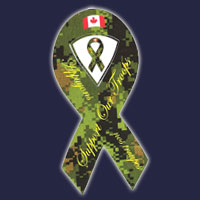The Iraqi Election results have been postponed because of about 400 ballot boxes which were recently unconcounted. The following breakdown of the key players is by Saleem at Free Iraq:
Thursday, February 10, 2005
SOME INFORMATION ABOUT THE ELECTION
Hi again,today I will talk about Iraqian parties that were competed in the last election, in 30 January,2005 , instead of the final results of election because the annoucing of the final results have been delayed a the final resulsts will be annouced in the next coming days.
United Iraqi Alliance
Abdul Aziz al-Hakim
Widely expected to dominate the election, the United Iraqi Alliance fielded 228 candidates, drawn largely from the Shiite political establishment and tacitly endorsed by Grand Ayatollah Ali al-Sistani. The list included Shiite cleric Abdel-Aziz al-Hakim, leader of the key Shiite political organization, the Supreme Council of the Islamic Revolution in Iraq. Al-Hakim opposed Saddam Hussein from exile in Iran before returning after the U.S.-led invasion and serving on the Iraq Governing Council.Also running with the alliance was Ahmad Chalabi, a Secular Shiite banker who led the Iraqi National Congress, an umbrella for groups that included Iraqi exiles, Kurds and Shiites. Chalabi, a one-time Pentagon confidant, fell out of favor with Washington in 2004 after claims he passed intelligence information to Iran.
The Iraqi List
Ayad Allawi
Considered more secular than the United Iraqi Alliance, The Iraqi List fielded 233 candidates. The list included a mix of Shiites and Sunnis, but Shiites accounted for the majority of top names. The group is led by interim Prime Minister Ayad Allawi, who's considered a moderate with a reputation for toughness in dealing with the multiple insurgencies gripping Iraq. The 60-year-old Shiite physician spent three decades in exile and has a long history of working with the U.S. government. A former member of Saddam's Baath Party, he comes from a wealthy family that was close to the royal family that ruled before Saddam took power.
Iraqis Party
Ghazi al-Yawer
A mix of Sunnis and Shiites, the Iraqis Party fielded 80 candidates. The party is led by interim President Ghazi al-Yawer, and favored by many Sunnis who agreed with al-Yawer's opposition to U.S. attacks aimed at wiping out insurgents in the hotbed cities of Fallujah and Mosul. Al-Yawer is a prominent Sunni member of the Shammar tribe, which includes Shiite clans and is one of the largest tribes in the Persian Gulf region. A civil engineer born in Mosul, he studied in Saudi Arabia and at Georgetown University in the United States. His post as interim president is largely ceremonial.
Kurdish Alliance List
Expected to get the bulk of the Kurdish vote in northern Iraq, the Kurdish Alliance fielded 165 candidates. The biggest names were Kurdistan Democratic Party leader Massoud Barzani and Patriotic Union of Kurdistan leader Jalal Talabani. Talabani is a Sunni Kurd who joined the Kurdistan Democratic Party as a teenager and then founded the PUK in 1957. Barzani, also a Sunni Kurd, leads the party founded by his father in 1946. He took over the party leadership when his father died in 1979 and has survived two assassination attempts. He also helped negotiate a short-lived autonomy agreement with Iraq's government in 1970 that ended nine years of fighting.
Assembly of Independent Democrats
Adnan Pachachi
Expected to fare well among intellectuals and the urban middle class, the Assembly of Independent Democrats fielded 78 candidates. The most notable was Sunni elder statesman Adnan Pachachi. A prominent secular Sunni, Pachachi is seen as a possible compromise figure to lead a future government. He was foreign minister in the government toppled in the 1968 coup by Saddam's Baath Party, and a member of the post-U.S. invasion Iraqi National Council.
National Democratic Party
The National Democratic Party, which has found some support among the educated Sunni middle class, fielded 48 candidates. One was Naseer Kamel al-Chaderchi, a Sunni lawyer, businessman and landowner who leads the party. A member of the former Iraqi Governing Council, al-Chaderchi is the son of Kamel al-Chaderchi, who played a leading role in Iraq's democratic development until 1968, when the Baath Party seized power.
National Rafidain List
An Assyrian Christian group, the National Rafidain List was expected to pick up some support for its 28 candidates from Iraq's tiny Christian community.The People's UnionThe People's Union was one of few groups whose candidates didn't have close ethnic or religious ties, and was seen as a possible pick among Iraqi expatriates living in secular countries. Its 275 candidates were drawn from secular Iraqis who fear clerical rule and leftists, including many women.
Subscribe to:
Post Comments (Atom)



No comments:
Post a Comment